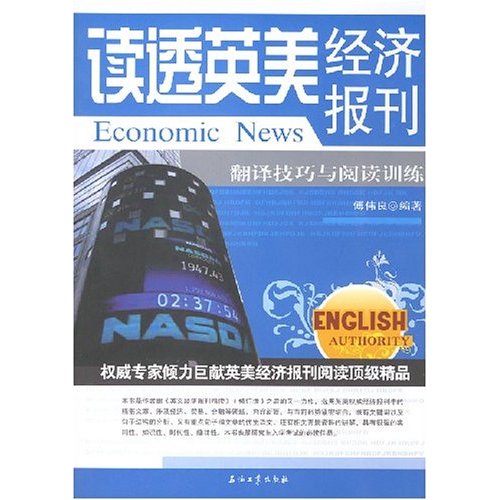A Journey into Chinese-English Environmental Translation
作者:古龙 2009-07-04




语际翻译公司 转载请注明https://www.scientrans.com
∗本栏目部分文章内容来自互联网,部分已经过本站编辑和整理,如有版权事宜请联系Email/MSN jesczhao@hotmail.com
Introduction
One of the great pleasures—and occasionally frustrations—in translation is hunting for translations of new words and unfamiliar terminology. It can be like a journey—you begin in one place, follow some false trails, backtrack a bit, and then stumble into a goldmine. Along the way you learn all about things that you'd never even thought existed before, some very useful, and some positively abstract. This article presents some of my own small journeys, tracking down English translations for Chinese words and phrases in the environmental field. I touch on a few common issues, such as misleading dictionary entries, words that don't appear in the dictionaries at all, and region-specific words. The range of topics covers geomorphology (the study of landforms), climatology, and general environmental terminology. For reference, the Chinese characters for each of the words discussed are listed in Figure 1.
Dealing with dictionaries
This discussion will begin by looking at words and phrases for which misleading English translations have been enshrined in the corpus of bilingual Chinese-English dictionaries. Top of my list in this category is nishiliu - a word that describes a certain sort of geological mass movement, a type of landslide. The primary English equivalent that is provided by almost every dictionary is "mud-rock flow", which also happens to be the literal character-for-character translation of the Chinese word. Unfortunately, as far as I can tell, "mud-rock flow" has no currency in common English usage. Instead, the closest equivalent is "debris flow". Both the English and the Chinese terms refer to a rapidly flowing, and sometimes destructive, mixture of rocks and fine particles ("debris") carried by torrential waters, a phenomenon common in mountainous regions.
To confirm this hypothesis, I undertook a quick web page survey through Yahoo (www.yahoo.com). A web page search for the phrase "mud-rock flow" returned 959 hits. Then, to test the theory that these pages had been written by individuals using Chinese-English bilingual dictionaries, I ran the same search but excluded web pages with the terms "china" and "cn" (this was done by entering +"mud-rock flow" -china -cn in the Search box). This resulted in a total of only 12 hits, of which six were also definitely related to China or Taiwan. Thus, out of a total of 959 web pages carrying the phrase "mud-rock flow", 953 were connected with China or Chinese in some way, leaving only 6 that had no confirmed link. For comparison, a search for the phrase "debris flow" returned 17,300 hits from around the world. This would suggest that "mud-rock flow" is a product of Chinese bilingual dictionaries, and may be an example of 'translationese'—a literally translated term or phrase used instead of the 'natural' option in the target language. Interestingly, there are two other Chinese words for debris flow that appear to be used less often: yanxieliu ("rock debris flow") and tushiliu ("earth-rock flow"). The latter of these is used more frequently in Taiwan (Taipei Municipal Teachers College 2003).
In some cases the bilingual dictionaries provide one of the possible equivalents in the target language, but omit others. An example is with qihou bianhua. Qihou literally means "climate", and bianhua means "change" or "vary". The obvious translation of qihou bianhua, and the one featured in most bilingual dictionaries, is "climate change". At this point it is worth noting that, scientifically speaking, the word "climate" refers to "the integrated weather experienced by a site or region over a period of many years" (Sturman and Tapper 1996). Therefore, climate change is the change in the long-term averaged weather patterns. The definition of qihou in the Xiandai Hanyu Cidian (Modern Chinese Dictionary, 1996 edition) agrees with that for the English word climate: "The general meteorological conditions in a specific region, as determined by many years of observations". The problem arises when short-term phenomena and changes are included as examples of qihou bianhua in Chinese texts: for example, cold waves/cold surges (a winter-time meteorological phenomenon) and typhoons are listed as examples of qihou bianhua in Zhao and Chen (1999). In this instance, qihou bianhua really means "fluctuations in the weather". In another example, in a Taiwanese movie I saw recently, one character says to another "Qihou bianhua le" when the weather changed from hot and dry to wet and stormy. Translated according to the dictionary, this would become "The climate has changed." In reality, it means that the weather has changed. So, there are really two different senses to this compound, only one of which is supplied by the dictionaries.
- 相关文章

- 没有相关文章
- 评论
- seme:文章内容文章内容文章内容文章内容文章内容文章内容文章内容文章内容文章内容 章内容文章内容文章内容文章内容文章内容
- seme:文章内容文章内容文章内容文章内容文章内容文章内容文章内容文章内容文章内容 章内容文章内容文章内容文章内容文章内容

- A Journey into Chinese-English Environ…
2009-5-29 11:16:54 - Introduction One of the great pleasures—and occasionally frustrations—in translation is hunti...
- 第四届IEEE生物信息与生…
2009-6-30 19:42:01 - 基本信息 主办单位: 四川大学,IEEE生物医学工程协会(EMBS) 承办单位 开始日期 2010/06/18 结束日期 截稿日期 2009/1...
- 第九届全国光电技术学术…
2009-6-30 19:35:58 - 基本信息主办单位: 中国宇航学会光电技术专业委员会承办单位 开始日期 2009/11/01结束日期 截稿日期 2009...















